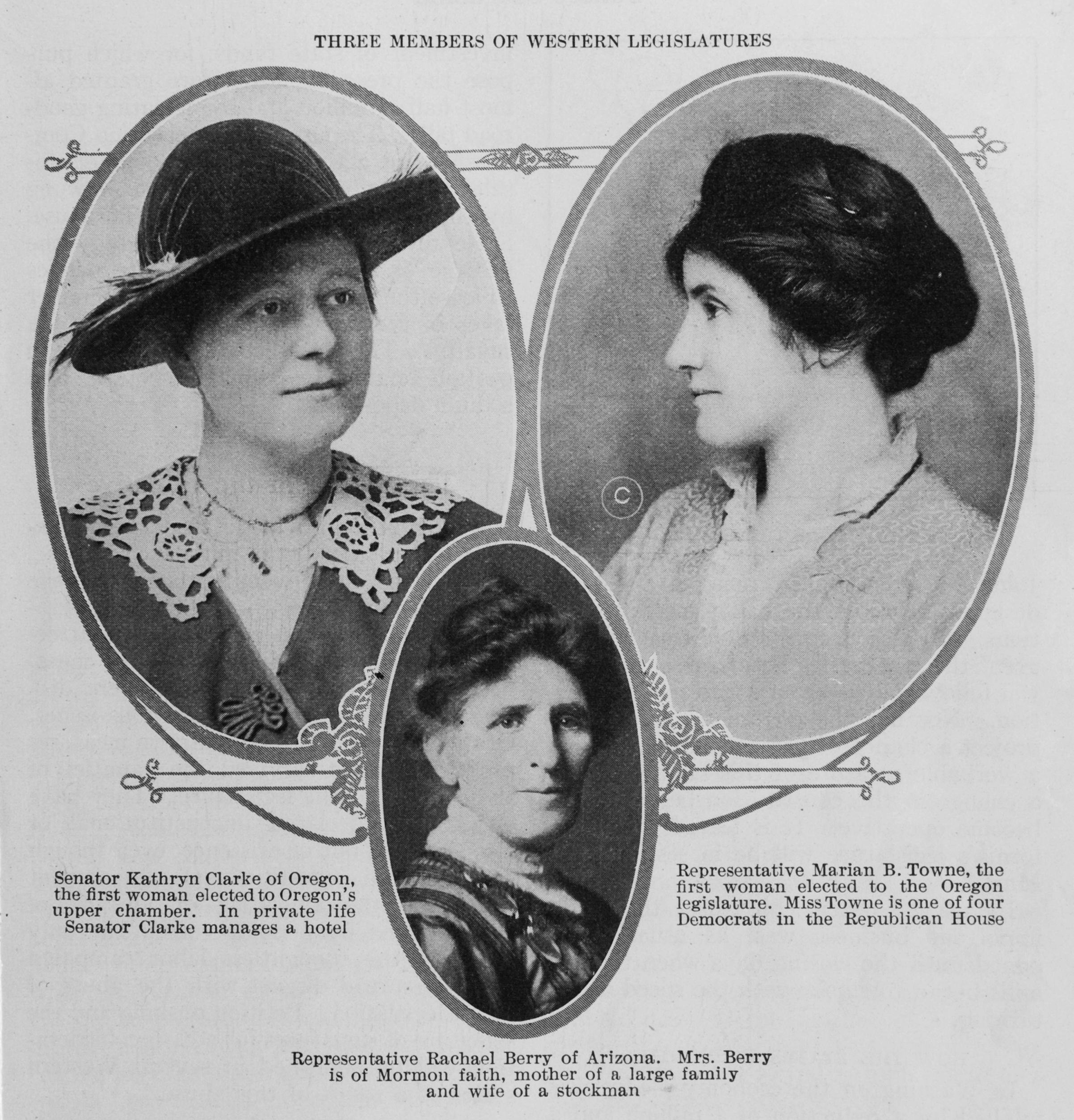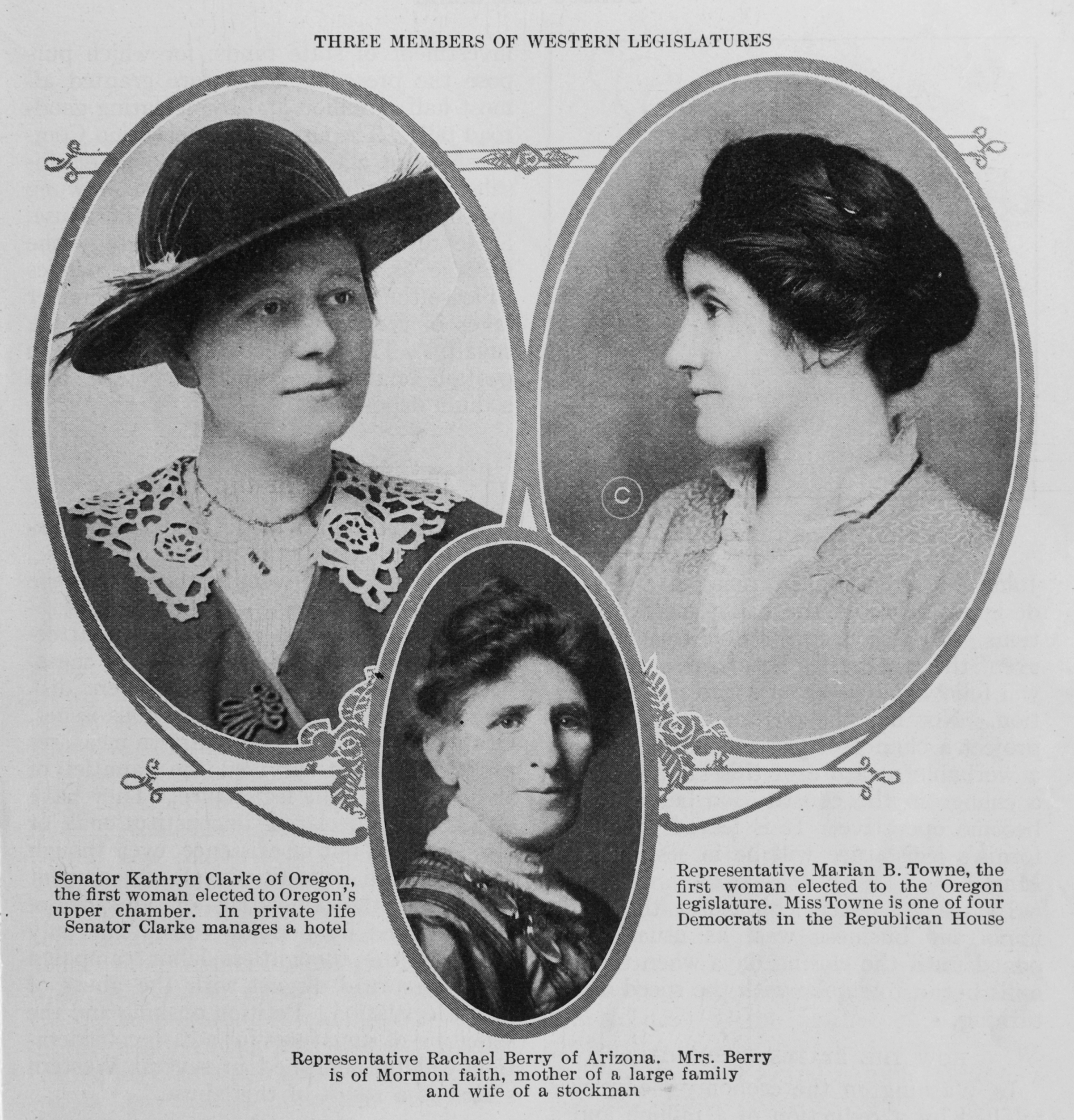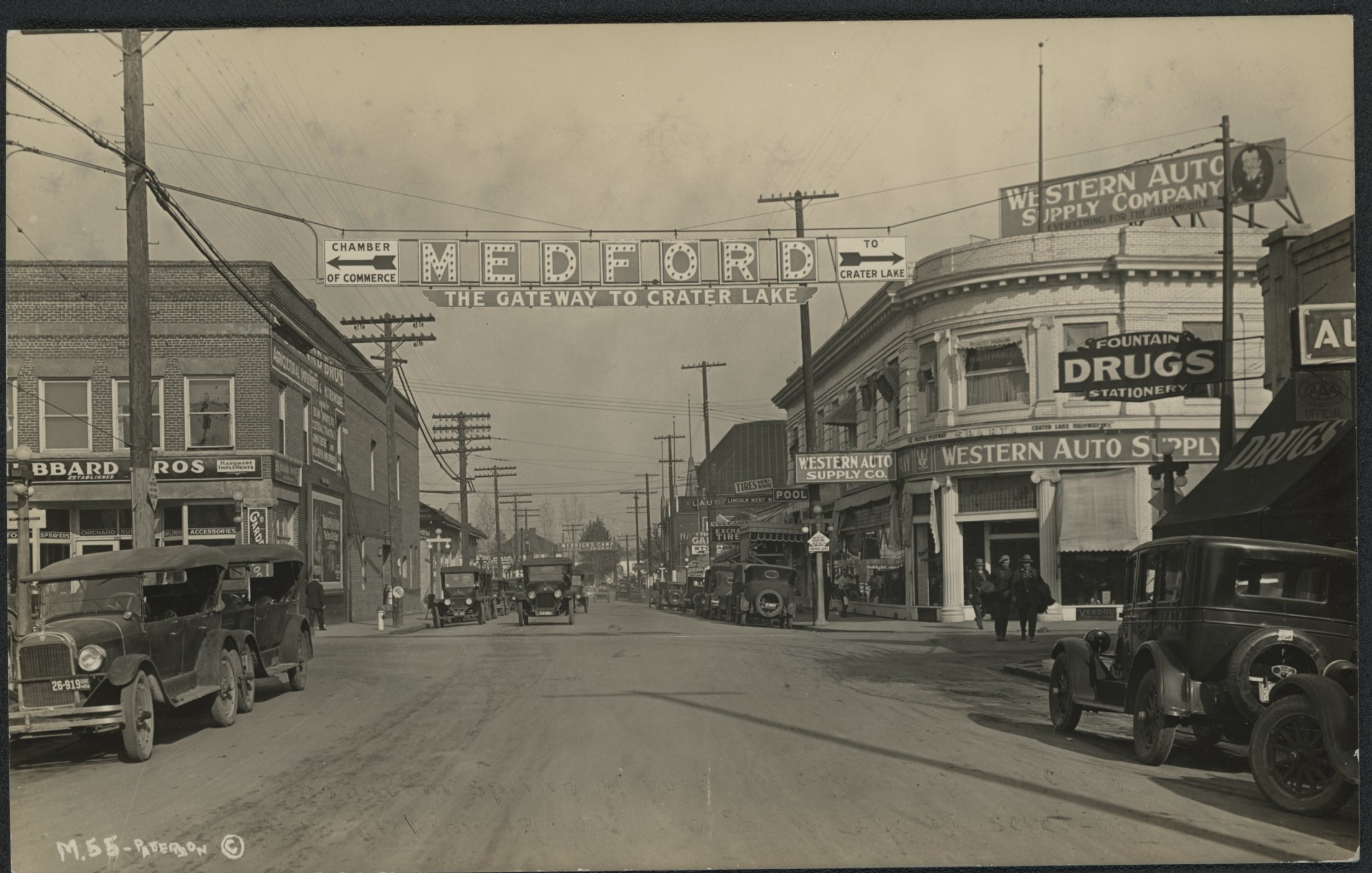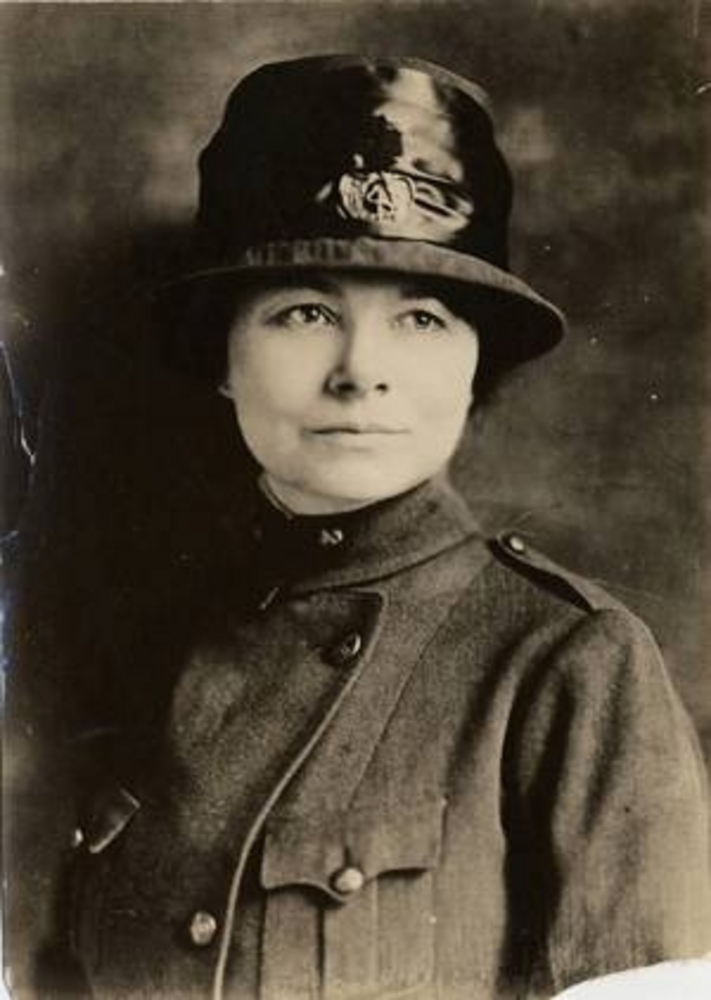As the first woman elected to the Oregon House of Representatives (1914), and one of the first women in the state to serve with the Naval Reserve Corps in World War I, Marian Towne was a leader in expanding opportunities for Oregon women in the early twentieth century.
Towne was born in 1880 in Sterling, Jackson County, Oregon, to William Francis and Mary Ellen Stockberger Towne; she had two sisters and a brother. The family moved to Phoenix, Oregon, where she attended school and her father built a successful mercantile business. After graduation, Towne worked as an assistant county clerk in Medford. By 1908, she was also studying law at night, and she left Oregon for a term at the University of Michigan law school before returning to work with the county. Towne’s tasks included reading and filing new state laws that would affect the county. She identified many problems with the legislative process and thought that she might be a good legislator.
Oregon women had achieved the right to vote in November 1912, and Towne decided to run for the state legislature in 1914, the first time women were eligible to campaign for that office. She secured endorsements and advice from Medford Mayor W.H. Canon and Medford Mail Tribune publisher George Putnam, and she filed her candidacy for representative from Jackson County as a Democrat. Towne estimated that she visited three-quarters of the households in the Rogue River Valley in her successful house-to-house campaign, and she gave speeches (including a presentation on the legal status of women in Oregon) to various community groups.
Towne was elected and went to Salem for the 1915 legislative session. She was joined by Kathryn Clarke, the first woman to serve in the Oregon Senate. Towne met opposition from many male legislators, but also found success in her work. She served on three House standing committees, including Education, Health and Public Morals, and Salaries. She introduced a bill that would have increased school funding and expanded the minimum school term from six to eight months, and spoke in defense of funding the Oregon Girl’s Industrial Home, an institution for young women without family or resources. Towne sought, but did not achieve, reelection in 1916.
On March 29, 1917, just a week before the United States entered World War I, Towne volunteered for service as a Yeoman F (for female) in the U.S. Naval Reserve, the first time that women other than nurses were admitted into the U.S. armed forces. With other women from Medford, Towne served as a clerk at the Bremerton Naval Yard in Washington State. While there, she applied for a regular commission in the navy, but women were not yet admitted as officers and her request was rejected.
Towne gained the rank of Chief Yeoman F and worked in the paymaster’s office before her discharge on June 30, 1920. After the war, Towne worked at the Washington state health department and with the California Bar and Public Welfare Division. In the late 1950s she returned to Phoenix and died there on February 16, 1966.
-
![]()
Marian Towne, c.1915.
Courtesy Oregon Hist. Soc. Research Lib., 009369
-
![Kathryn Clarke (l) and Marian B. Towne (r), from Sunset magazine, April 1915.]()
Clarke, Kathryn, and Towne, Marian, Apr 1915, bb006018.
Kathryn Clarke (l) and Marian B. Towne (r), from Sunset magazine, April 1915. Oreg. Hist. Soc. Research Lib., bb006018
Related Entries
-
![Kathryn Clarke (1873-1940)]()
Kathryn Clarke (1873-1940)
Kathryn Clarke, the first woman to serve in the Oregon Senate, made wor…
-
![Medford]()
Medford
Medford, the county seat of Jackson County, was platted in 1883 in the …
-
Woman Suffrage in Oregon
The campaign to achieve voting rights (also called suffrage or the fran…
Related Historical Records
Map This on the Oregon History WayFinder
The Oregon History Wayfinder is an interactive map that identifies significant places, people, and events in Oregon history.
Further Reading
Jensen, Kimberly. "Revolutions in the Machinery: Oregon Women and Citizenship in Sesquicentennial Perspective." Oregon Historical Quarterly 110.3 (Fall 2009): 336-61.
Waldron, Sue. “Marian B. Towne: Oregon’s First Woman Legislator.” Table Rock Sentinel (March/April 1990), 5-6.





